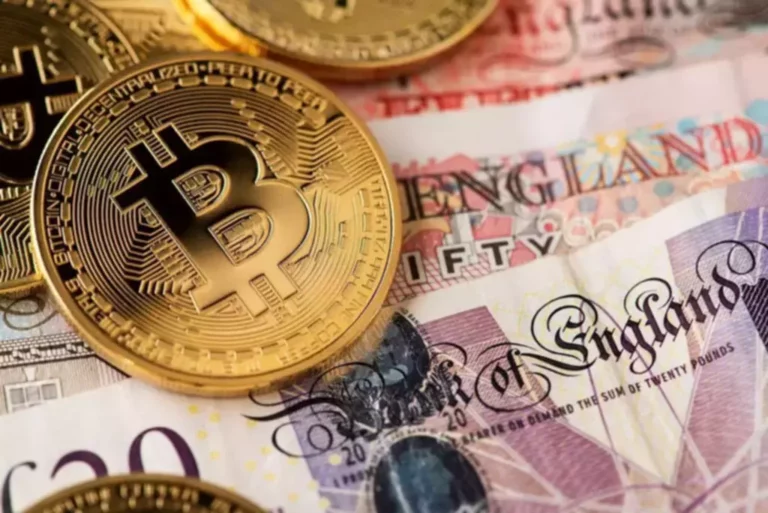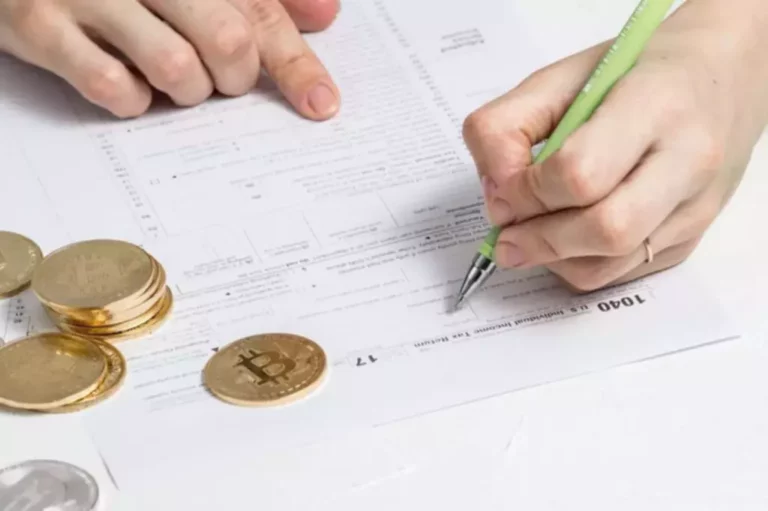In the United Kingdom, the tax season begins on April 6th and runs until April 5th of the next year. When sending a self-assessment, many procedures must be completed before the end of July. As in many other countries, Her Majesty’s Revenue and Customs does not enact new tax laws. Instead, since 2018, experts have been striving to adapt the existing tax code as much as possible to the realities of cryptocurrency; e. g., in 2022, the department described how to inform staking taxes and described the decentralized finance (DeFi) lending process. In this article, we will discuss what taxes exist on digital coins and how to avoid crypto taxes UK.
How are crypto assets regulated in the UK?
HMRC classifies three types of virtual assets: exchange tokens (crypto coins, e.g., bitcoin), utility tokens (units of account issued by companies to achieve official purposes), and security tokens (this is one form of capital in business).
The critical reporting principles apply to all categories of virtual currencies, but the HMRC rules state utility and security tokens «may require a different tax treatment.» However, experts should explain what processing principles to use when dealing with different types of tokens.
In Britain, cryptocurrencies are not considered money but rather assets. According to HMRC, most people hold digital coins as a personal investment, so they will have to pay capital gains tax if they want to dispose of cyber money freely. We will speak below about the payment of different types of taxes.



Turnkey Brokerage Solution For Your Business
Get the most profitable fully licensed fx/crypto brokerage software or ready-to-operate business in 48 hours. Best-in-class web & mobile trading platforms, sales-driven CRM, full integration with MT4/5, and 150+ payment providers.
Do I need to pay taxes on crypto in the UK?
There is no special crypto tax UK, but you still have to pay taxes on digital currency. Your virtual money will be subject to two main categories: income tax and capital gains tax, just like any other service or goods you can trade. In some cases, there are additional mandatory fees, e.g., an insurance premium, if you get a salary in cryptocurrencies. The kind of tax and the sum you must pay may vary depending on the specific operations; let’s discuss this in more detail.
Income tax
Such payment applies to people interacting with digital assets through trading. The most striking example is a day trader, actively buying and selling crypto coins to earn income in the short term.
The definition of «trading» includes people who perform financial transactions with cryptocurrencies with such intentions, volumes, frequency, and level of organization that this activity can be equated with money transactions.
Digital currency earnings up to £12,570 are not subject to income tax. If you get more, your net revenue will be subject to income tax at 20%, 40%, or 45% (depending on your tax bracket). Entrepreneurs who are in Scotland have a few other groups: 19% starting rate and 21% intermediate rate.
Calculating crypto income is easy, although the procedure can be time-consuming. It would help if you estimated the market value of the virtual cash or tokens at the moment of the transfer of ownership in pounds sterling.
It’s easy to earn money sometimes, but it takes longer when you make small sums regularly, e.g., through mining. It may take more than one hour to determine the fair worth of each transaction in 365 days.
Capital gains tax (CGT)
You determine capital gains or losses at the time of the sale of online assets. In the HMRC documents, the deal means selling a cyber cache, exchanging one digital coin for another, and transferring crypto banknotes to another person (as a gift or as payment for goods or services). You report capital gains or losses in the financial industry on additional tax return pages.
When calculating profit or damages, you can subtract the costs of purchasing digital assets, transaction commission, and professional spending, e.g., the expenses of drawing up a trade agreement.
You may consider capital expenses from cyber money transactions when defining bitcoin UK tax. If you sell crypto at a price below its allowed value, you incur losses; this amount can be deducted to cut capital gains. When the cost falls to zero or a minimum amount, it is possible to speak of a total loss, but this issue must be resolved individually in HMRC.
Individuals pay capital gains duty on their total income over the annual tax-free sum of £12,300. Any revenue that exceeds this amount is subject to a base tax rate of 10% (up to £50,270) and a 20% rate when we speak about more significant sums.
In November 2022, HM Treasury announced the annual exemption would change from £12,300 to £6,000 from April 2023 to £3,000 from April 2024.
Matching rules
The pooling practice that is used when we deal with securities is also actual for digital coins. Each token is stored in a separate pool. The average amounts a trader has paid for these coins form the basis of the average value, which can fluctuate as some of the tokens are retired. HMRC establishes “resistance rules” to limit the profit from sales by matching the purchase and sale of the same asset by the same investor in the next order:
- Tokens of the same cryptocurrency are purchased and sold on the same day (one-day principle).
- Tokens of the same crypto coins are purchased and redeemed within a month (30 days principle).
- A single pool of similar digital assets with an average cost acquired before the date of disposal.
In a hard fork, all eligible costs associated with a pre-fork acquisition are shared between the initial fork and the new fork.
Airdropped tokens would form their pool if the recipient did not previously own such a token. The worth of airdropped tokens is not affected by existing held assets.
What happens if I don’t report profits from digital resources?
Under HMRC requirements, taxpayers who withhold their income data may face a 20% capital gains duty and various interest and penalties up to 200% of the amount they were required to pay. People who refuse to pay taxes can also be prosecuted and even jailed.
It is impossible to say whether you will run into the troubles listed above if you forget to submit your tax return for your digital cash to HMRC. In any case, we advise you not to take risks and comply with all requirements when registering income growth.
If you did not inform the authorized agency of your profit or loss, you could remedy the situation by filing an amended self-assessment tax return.
How to prepare for the payment of taxes on cryptocurrency?
The deadline for filing and paying duty on virtual assets in the UK is midnight on January 31st. However, since the final date when submitting documents and making a payment are the same, we recommend you report your mandatory fees in advance. It gives you a window of time before paying your bills. Experts have created several recommendations on how to properly prepare to pay taxes in the country:
- Take control of your wallets and record which protocols you deposit capital in. Before trading, ensure you have enough funds to meet your tax obligations. Remember the currency’s value in pounds sterling when filling out the documents.
- Set up a calendar notification for that tax due date and give yourself enough time to prepare all the paperwork carefully.
- Consider contacting an accountant. At some point, taxes on crypto coins can become a complex procedure, especially for DeFi protocols, while specialists help save time and money and avoid fines.
- Consider a custom cryptocurrency tax program. Reliable programs assist you in collecting information from exchanges and DeFi protocols to calculate the final tax payment amount. Remember that even the most advanced platform can only partially replace an accountant.
After completing all the above steps, you must submit a tax return self-assessment. It should happen directly in the HMRC. You may terminate the paperwork or ask an accountant to present the declaration on your behalf.

Some ways to avoid crypto taxes legally
If you are a UK resident and are trying to find options to avoid paying duties on your digital assets, there are several steps you can take to reduce the burden. Understanding that such tax mitigation methods apply to people who hold cryptocurrency as a personal investment is vital. If you are actively involved in cyber quasi-money transactions, then different standards apply to you on how to avoid crypto taxes UK.
Assess your losses
You understand that you only lose capital when you sell or spend digital assets. However, even if the resources do not move, the worth of cyber money has decreased since the moment you got it, and you will have unrealized losses. If you realize that you will have to pay huge bills very soon and there are several unsuccessful assets in your portfolio, it may make sense to collect them and sell them at a loss. Such a procedure is called the collection of tax losses.
You must know wash sales are prohibited in the country. They involve selling tokens at a loss and repurchasing them immediately to demonstrate losses.
Donation to a charitable organization
Any donations are not subject to UK income duties. The donor may also qualify for exemption from the capital gains tax, but there are a few caveats:
If a person sells crypto coins to a charitable foundation for more expensive than the purchase price, he must pay CGT on the distinction between the sale and purchase cost.
Tax payments cannot be avoided with a tainted donation if the person utilizes the present to get financial gain.
Make a surprise for a wife, husband, or civil partner
Transfers between spouses and civil partners are tax-free in the UK. It means you may gift digital assets to your sweetheart to slash your liability, effectively doubling your non-taxable capital gains duty to £24,600 and income payment to £25,140.
Invest in a pension fund
By making pension contributions (if there is a net income), you may decrease CGT from 20 to 10%. Note this is not necessarily a simple process, and all the details should be clarified in advance with a financial advisor.
Invest in EIS
Profits an individual has earned from their financial participation in an Enterprise Investment Scheme (EIS) are exempt from CGT if the capital is held for three or more years. Suppose assets are disposed of at a loss. In this situation, you may request that the amount of the failure, less any tax credits granted to you, be credited against earnings when the resources were sold or any other revenue from the previous year instead of increasing capital gains.
There is no minimum period for which resources must be owned; deferred capital gain is returned to management each time assets are disposed of. The main downside of EIS is that such a scheme is riskier than traditional investments.
Summary
As with any other type of revenue, you must pay tax on cryptocurrency UK if your earnings are more than the stated amount.
The country has limits on tax-free benefits that can be used to reduce the duty base and various loopholes that allow you to cut the bill. In any case, it will be impossible to avoid mandatory payments altogether if you do not plan to break the laws.
Traders may decrease duty bills by considering how much they earn from digital assets during the year. Calculating expenses can be suitable when reducing your account, as your losses will be credited against your capital gains tax.
There are other options on how to avoid crypto taxes UK, e.g., through a donation to charity, contributions to a pension fund, or a present to a spouse; they will help lawfully cut your payings. Consider consulting with an accountant before performing any capital manipulation to ensure you are acting in the best possible way to meet your needs.






